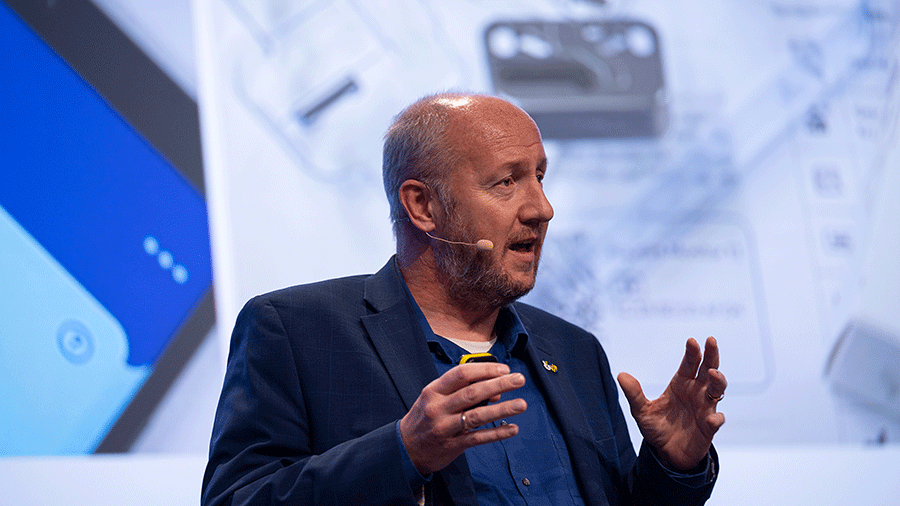Walking the walk: ARI’s Richards champions improving FTERM gender parity

The International Fellows of Tissue Engineering and Regenerative Medicine (FTERM) closes in on gender parity across its regions, thanks in large part to the efforts of FTERM Chair and AO Research Institute Davos (ARI) Executive Director Prof Geoff Richards. FTERM was created by the Tissue Engineering and Regenerative Medicine International Society (TERMIS) to recognize distinguished leaders for their roles in shaping the tissue engineering and regenerative medicine field and TERMIS.
Richards is no stranger to opportunity, diversity, and inclusion: In addition to fostering equal opportunities at ARI through the Gender Equality Plan, he created TERMIS’ diversity statement during his 2019–21 term as president of the organization dedicated to advancing tissue engineering and regenerative medicine worldwide to generate knowledge and improve patient outcomes globally.
Richards is no stranger to opportunity, diversity, and inclusion: In addition to fostering equal opportunities at ARI through the Gender Equality Plan, he created TERMIS’ diversity statement during his 2019–21 term as president of the organization dedicated to advancing tissue engineering and regenerative medicine worldwide to generate knowledge and improve patient outcomes globally.
Walking the walk
“Creating the diversity statement during my term as TERMIS president was talking the talk, but I must also walk the walk. On seeing that the society's fellows were mainly male, it was important to try to achieve gender parity while maintaining the very high FTERM standards,” Richards explained. Current fellows unanimously supported advancement of the initiative.To do that, Richards—in his role as FTERM chair—introduced a one-time initiative to nominate more women as fellows. Fellows are recognized every three years at the TERMIS World Congress, with existing fellows nominating and approving new fellows. Each nomination requires the signatures of two existing fellows with the stipulation that no fellow could sign more than two nominations. Under the initiative advanced by Richards, existing fellows are asked to consider the need for a gender- diverse group of fellows in a one-off, extra year of fellow nominations to bring the group nearer to parity.
Making progress
That approach so far has yielded progress: Seven new female fellows were elected at the TERMIS European Chapter Meeting 2023 in March in Manchester, United Kingdom, and the TERMIS Americas Chapter Meeting 2023 in Boston, United States. With these new fellows, 19 of 50 current FTERM are female. The final stage of this initiative should result in the election of several new female fellows from the TERMIS Asian region, and Richards expects the organization to achieve near-parity across the organization after the Asia Pacific chapter meets in October. Currently this region only has male fellows.“These new female fellows increase the number of role models for early-career female scientists in our field,” said Richards. “This initiative is important to me because young female scientists need role models of their own gender. This initiative is an obvious step so that everyone in our field can see a path to their future in tissue engineering and regenerative medicine. It’s important to take strong steps now in order to move forward.”
At the AO, diversity, inclusion, and mentorship are driven by AO Access, which uses an evidence-based approach to make the organization more diverse and inclusive.
"I would love to see more walk the walk at the AO within our AO Trustees, boards, commissions and faculty, as progress here is rather slow in my view and early-career female surgeons also need female role models," said Richards. "Sometimes, immediate affirmative action is required without compromising any of the AO standards."
You might also be interested in:
Learn more about the ARI Gender Equality Plan
Read the AO Access Voices for Change
Geoff Richards receives ICORS Transformative Contribution Award

